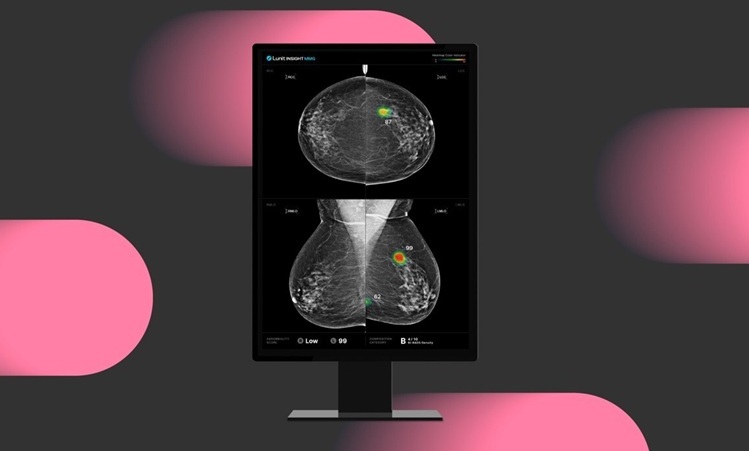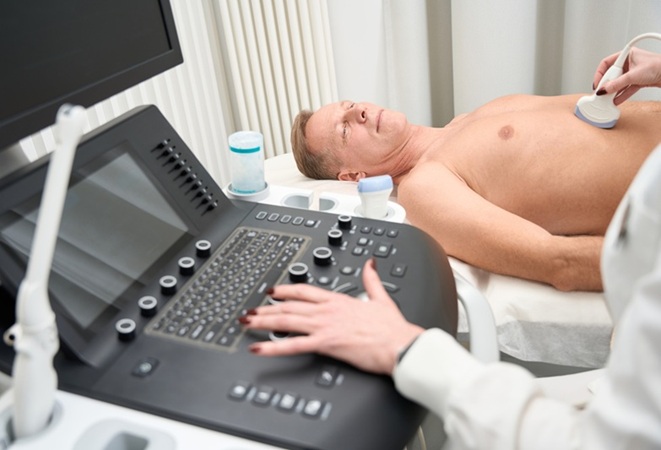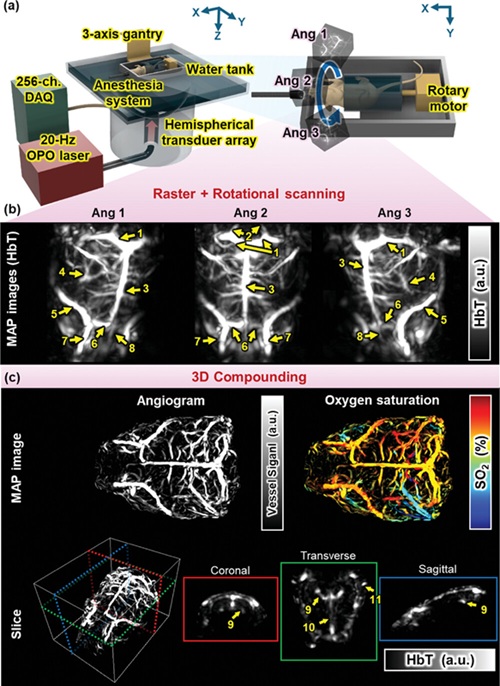Bayer and Google Partner on New AI Product for Radiologists
|
By MedImaging International staff writers Posted on 10 Apr 2024 |

Medical imaging data comprises around 90% of all healthcare data, and it is a highly complex and rich clinical data modality and serves as a vital tool for diagnosing patients. Each year, billions of medical images are scanned across the world and this number continues to grow, increasing the workload of radiologists and healthcare professionals responsible for handling and interpreting these images for clinicians and patients. There is a need to develop and maintain new supportive artificial intelligence (AI) tools to efficiently handle and analyze the huge amount of data. Now, a new innovation platform aims to help organizations develop AI-powered apps to assist radiologists, reduce burnout and support more efficient diagnoses.
Bayer (Leverkusen, Germany) and Google Cloud (Mountain View, CA, USA) have entered into a collaboration to develop AI solutions that can support radiologists and better serve patients. As part of the collaboration, Bayer will further develop its innovation platform to speed up the development and deployment of AI-powered healthcare applications with a clear focus on radiology, using Google Cloud's technology, including its generative AI (gen AI) tools. The collaboration aims to help overcome several challenges faced by organizations in building scalable and compliant AI-powered medical imaging software products using leading data security capabilities and speed up the development of potentially groundbreaking and impactful solutions that can benefit patients.
Bayer's innovation platform provides a cloud-native pipeline from product idea to launch. Users can uncover insights with AI-powered data analysis, and help design breakthrough healthcare solutions by accessing a data ecosystem, as well as using intelligent search and data preparation capabilities. Additionally, users can explore and extract information from regulations and scientific papers, all within a collaboration platform with the latest data security capabilities. Developers can also scale and engineer solutions using gen AI assistance for ideation, development, validation, and lifecycle management; generate documents in alignment with healthcare requirements to aid in gaining regulatory approval; leverage medical imaging core lab services from Bayer for clinical performance evaluation. Healthcare and life science companies can deploy gen AI medical solutions standardized for flexible integration across compatible healthcare systems; and analyze field data for insights, bias detection, and continuous improvement.
The platform is built on Google Cloud and uses tools like Vertex AI, BigQuery, Healthcare API, and Chronicle. Bayer's platform is designed to help bring innovative medical imaging tools to market faster and more cost-effectively. The company plans to make the first version for extended testing available later this year in the EU and US. By combining Bayer's deep radiology, healthcare regulatory, and clinical data handling expertise with Google's technology leadership in gen AI and other fields, the partnership has the potential to significantly impact the healthcare ecosystem, by improving patient outcomes, lowering costs, and accelerating innovation. The expanded collaboration on the new innovation platform builds upon a long-standing partnership between Bayer and Google Cloud across a wide range of technologies and efforts, including accelerating drug discovery and supporting patient diagnosis. Bayer and Google Cloud are also working together on responsible AI adoption to transform patient care across the world.
"Radiology plays a vital role in healthcare, and the need to efficiently and accurately uncover insights and deliver solutions at scale that can improve patient outcomes has never been greater," said Nelson Ambrogio, president, of Radiology at Bayer. "Bayer has a heritage in radiology with decades of contributions to radiological research and innovation. Through the collaboration with Google Cloud, our joint efforts will help organizations in the healthcare and life science industry transform the growing amounts of data into valuable and impactful insights, saving radiologists time and helping them optimize their important work for the benefit of patients."
"Radiologists and other clinicians face burnout due to the sheer volume of work they face every day. Gen AI can help tackle repetitive tasks and provide insights into massive data sets, saving valuable time and helping to positively impact patient outcomes," said Thomas Kurian, CEO of Google Cloud. "We look forward to our continued collaboration with Bayer as it shapes the future of diagnostics and helps its customers deliver insights to patients with greater accuracy and speed."
Latest Industry News News
- GE HealthCare and NVIDIA Collaboration to Reimagine Diagnostic Imaging
- Patient-Specific 3D-Printed Phantoms Transform CT Imaging
- Siemens and Sectra Collaborate on Enhancing Radiology Workflows
- Bracco Diagnostics and ColoWatch Partner to Expand Availability CRC Screening Tests Using Virtual Colonoscopy
- Mindray Partners with TeleRay to Streamline Ultrasound Delivery
- Philips and Medtronic Partner on Stroke Care
- Siemens and Medtronic Enter into Global Partnership for Advancing Spine Care Imaging Technologies
- RSNA 2024 Technical Exhibits to Showcase Latest Advances in Radiology
- Bracco Collaborates with Arrayus on Microbubble-Assisted Focused Ultrasound Therapy for Pancreatic Cancer
- Innovative Collaboration to Enhance Ischemic Stroke Detection and Elevate Standards in Diagnostic Imaging
- RSNA 2024 Registration Opens
- Microsoft collaborates with Leading Academic Medical Systems to Advance AI in Medical Imaging
- GE HealthCare Acquires Intelligent Ultrasound Group’s Clinical Artificial Intelligence Business
- Bayer and Rad AI Collaborate on Expanding Use of Cutting Edge AI Radiology Operational Solutions
- Polish Med-Tech Company BrainScan to Expand Extensively into Foreign Markets
- Hologic Acquires UK-Based Breast Surgical Guidance Company Endomagnetics Ltd.
Channels
Radiography
view channel
Higher Chest X-Ray Usage Catches Lung Cancer Earlier and Improves Survival
Lung cancer continues to be the leading cause of cancer-related deaths worldwide. While advanced technologies like CT scanners play a crucial role in detecting lung cancer, more accessible and affordable... Read more
AI-Powered Mammograms Predict Cardiovascular Risk
The U.S. Centers for Disease Control and Prevention recommends that women in middle age and older undergo a mammogram, which is an X-ray of the breast, every one or two years to screen for breast cancer.... Read moreMRI
view channel
Ultra-Powerful MRI Scans Enable Life-Changing Surgery in Treatment-Resistant Epileptic Patients
Approximately 360,000 individuals in the UK suffer from focal epilepsy, a condition in which seizures spread from one part of the brain. Around a third of these patients experience persistent seizures... Read more
AI-Powered MRI Technology Improves Parkinson’s Diagnoses
Current research shows that the accuracy of diagnosing Parkinson’s disease typically ranges from 55% to 78% within the first five years of assessment. This is partly due to the similarities shared by Parkinson’s... Read more
Biparametric MRI Combined with AI Enhances Detection of Clinically Significant Prostate Cancer
Artificial intelligence (AI) technologies are transforming the way medical images are analyzed, offering unprecedented capabilities in quantitatively extracting features that go beyond traditional visual... Read more
First-Of-Its-Kind AI-Driven Brain Imaging Platform to Better Guide Stroke Treatment Options
Each year, approximately 800,000 people in the U.S. experience strokes, with marginalized and minoritized groups being disproportionately affected. Strokes vary in terms of size and location within the... Read moreUltrasound
view channel
Tiny Magnetic Robot Takes 3D Scans from Deep Within Body
Colorectal cancer ranks as one of the leading causes of cancer-related mortality worldwide. However, when detected early, it is highly treatable. Now, a new minimally invasive technique could significantly... Read more
High Resolution Ultrasound Speeds Up Prostate Cancer Diagnosis
Each year, approximately one million prostate cancer biopsies are conducted across Europe, with similar numbers in the USA and around 100,000 in Canada. Most of these biopsies are performed using MRI images... Read more
World's First Wireless, Handheld, Whole-Body Ultrasound with Single PZT Transducer Makes Imaging More Accessible
Ultrasound devices play a vital role in the medical field, routinely used to examine the body's internal tissues and structures. While advancements have steadily improved ultrasound image quality and processing... Read moreNuclear Medicine
view channel
Novel Radiotracer Identifies Biomarker for Triple-Negative Breast Cancer
Triple-negative breast cancer (TNBC), which represents 15-20% of all breast cancer cases, is one of the most aggressive subtypes, with a five-year survival rate of about 40%. Due to its significant heterogeneity... Read more
Innovative PET Imaging Technique to Help Diagnose Neurodegeneration
Neurodegenerative diseases, such as amyotrophic lateral sclerosis (ALS) and Alzheimer’s disease, are often diagnosed only after physical symptoms appear, by which time treatment may no longer be effective.... Read moreGeneral/Advanced Imaging
view channel
AI Model Significantly Enhances Low-Dose CT Capabilities
Lung cancer remains one of the most challenging diseases, making early diagnosis vital for effective treatment. Fortunately, advancements in artificial intelligence (AI) are revolutionizing lung cancer... Read more
Ultra-Low Dose CT Aids Pneumonia Diagnosis in Immunocompromised Patients
Lung infections can be life-threatening for patients with weakened immune systems, making timely diagnosis crucial. While CT scans are considered the gold standard for detecting pneumonia, repeated scans... Read moreImaging IT
view channel
New Google Cloud Medical Imaging Suite Makes Imaging Healthcare Data More Accessible
Medical imaging is a critical tool used to diagnose patients, and there are billions of medical images scanned globally each year. Imaging data accounts for about 90% of all healthcare data1 and, until... Read more















![Image: [18F]3F4AP in a human subject after mild incomplete spinal cord injury (Photo courtesy of The Journal of Nuclear Medicine, DOI:10.2967/jnumed.124.268242) Image: [18F]3F4AP in a human subject after mild incomplete spinal cord injury (Photo courtesy of The Journal of Nuclear Medicine, DOI:10.2967/jnumed.124.268242)](https://globetechcdn.com/mobile_medicalimaging/images/stories/articles/article_images/2025-02-24/Brugarolas_F8.large.jpg)



